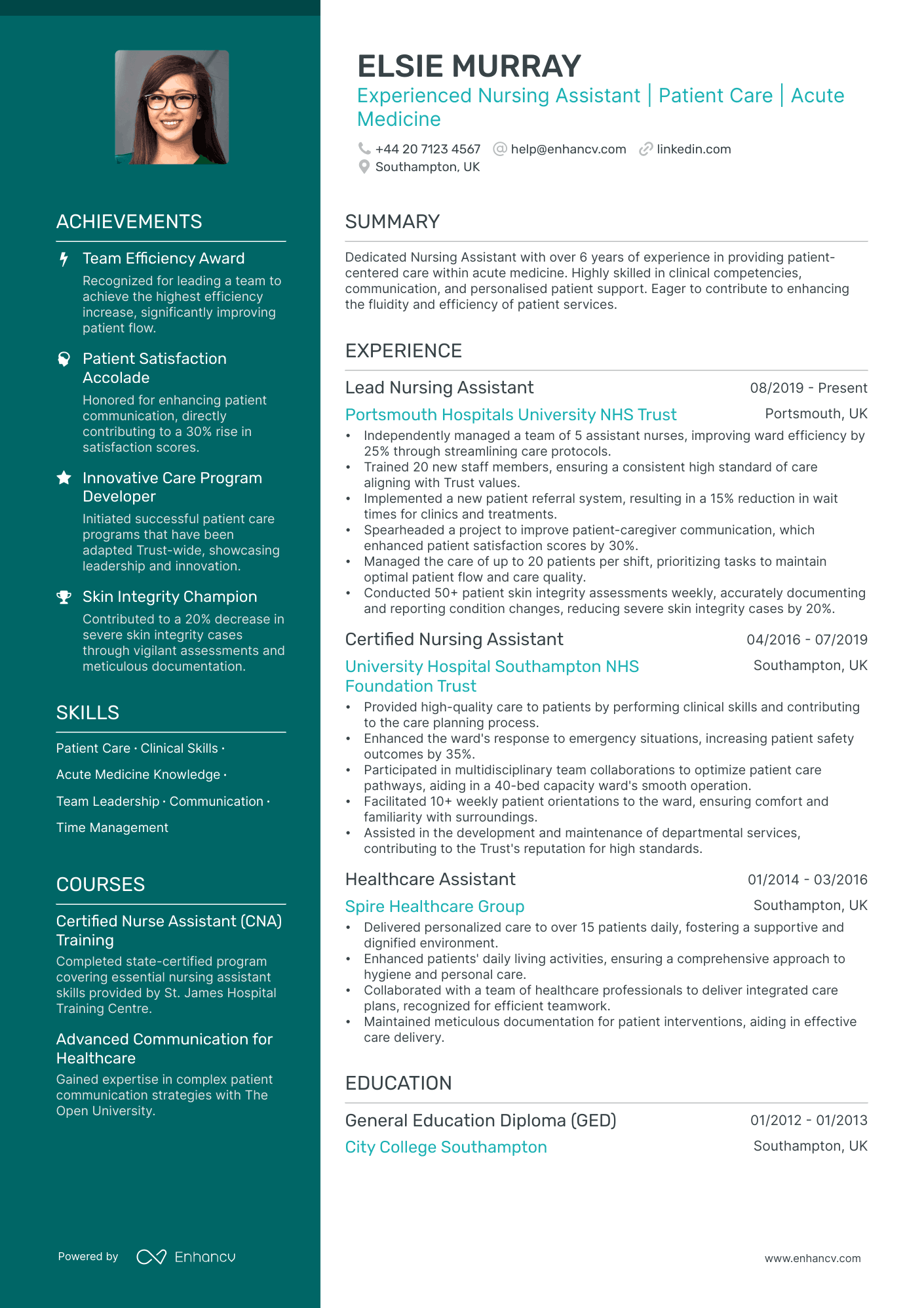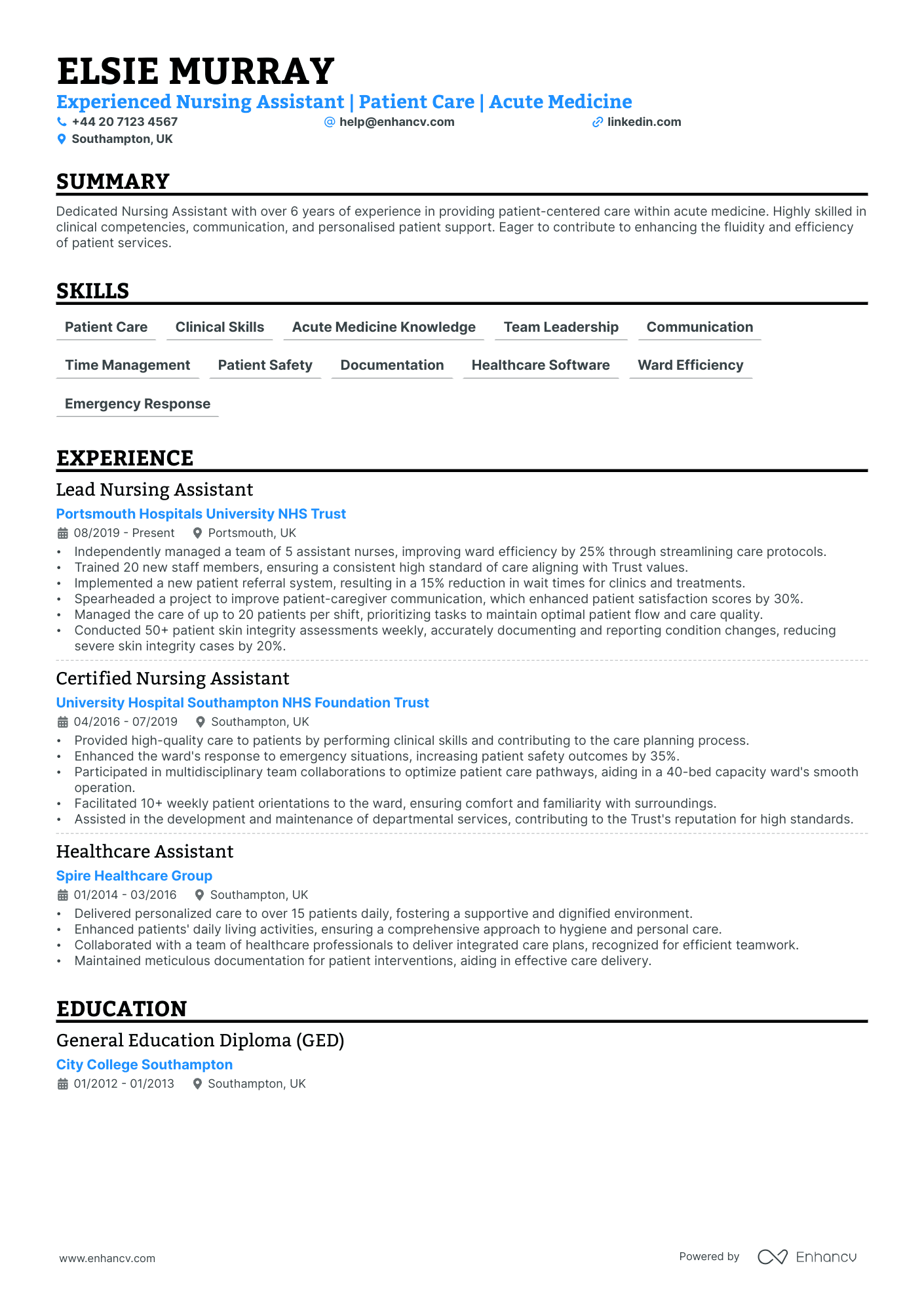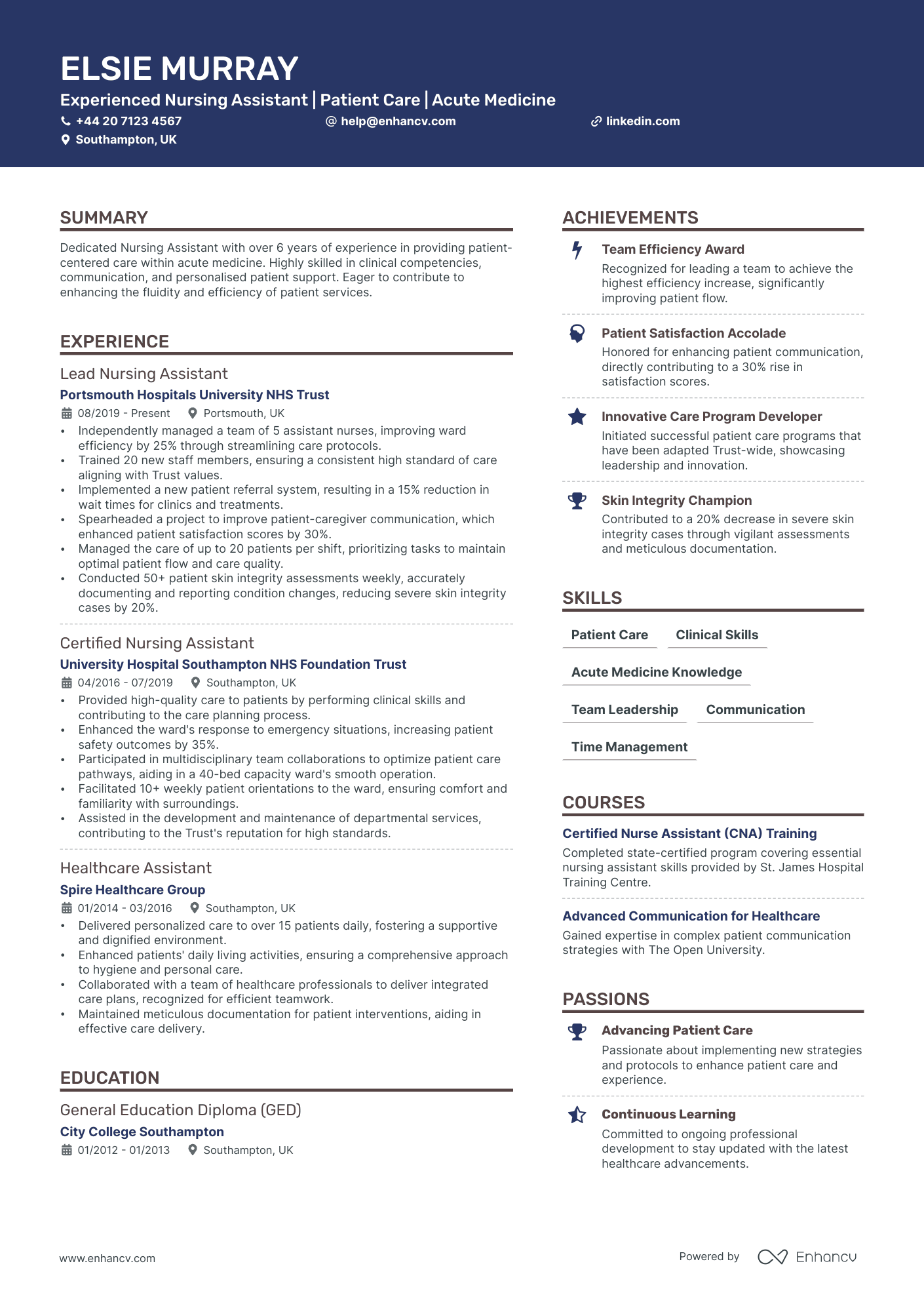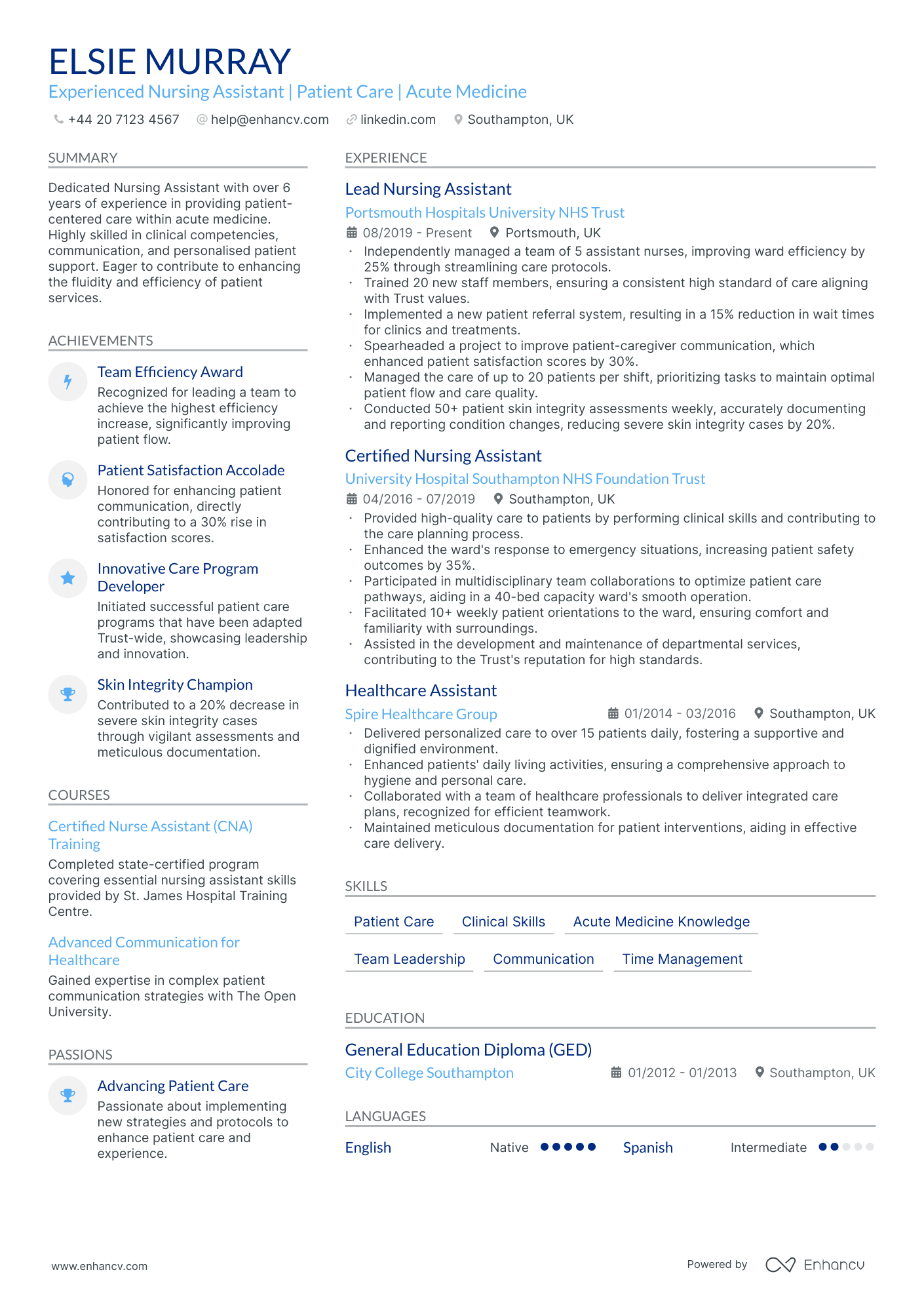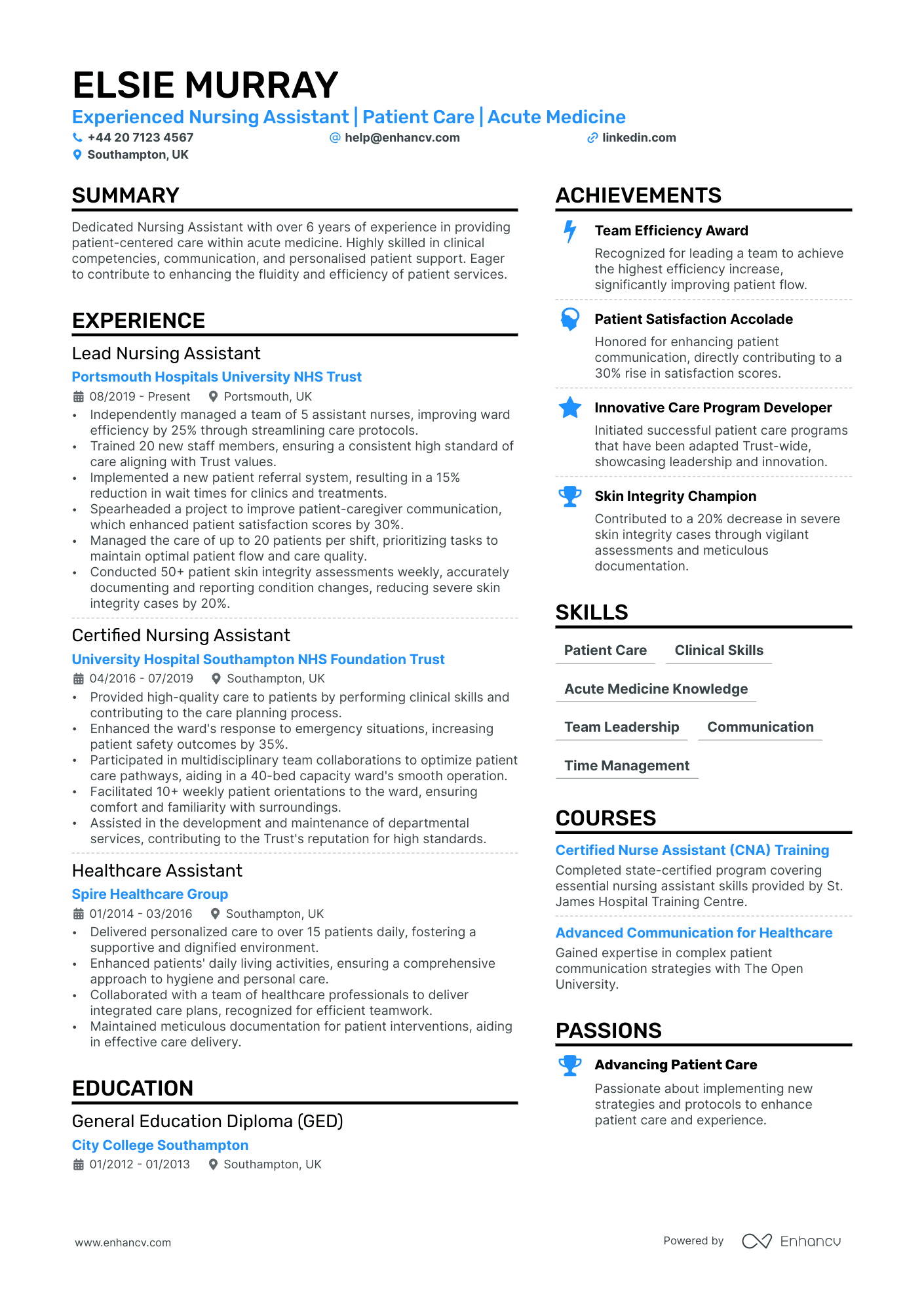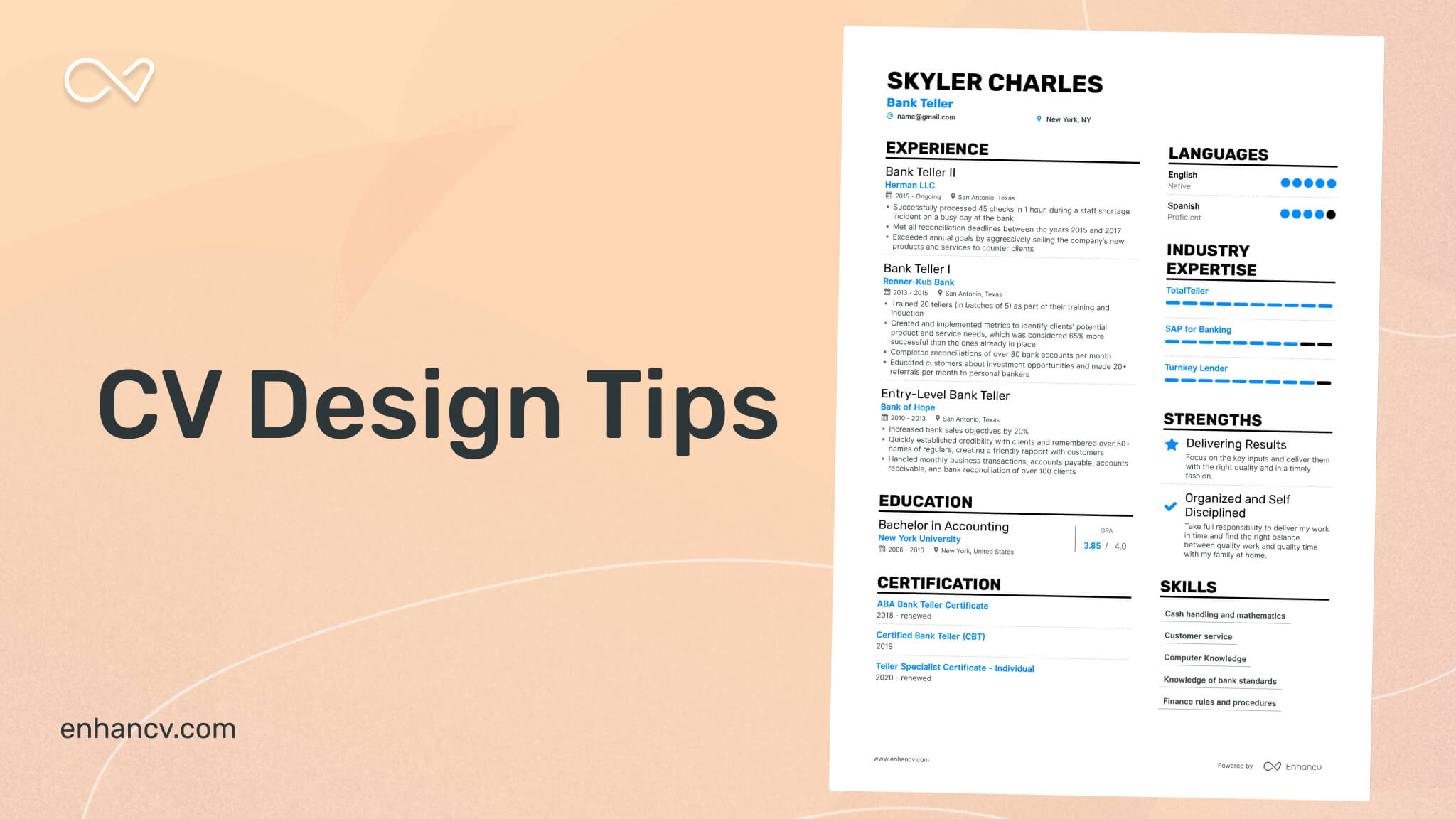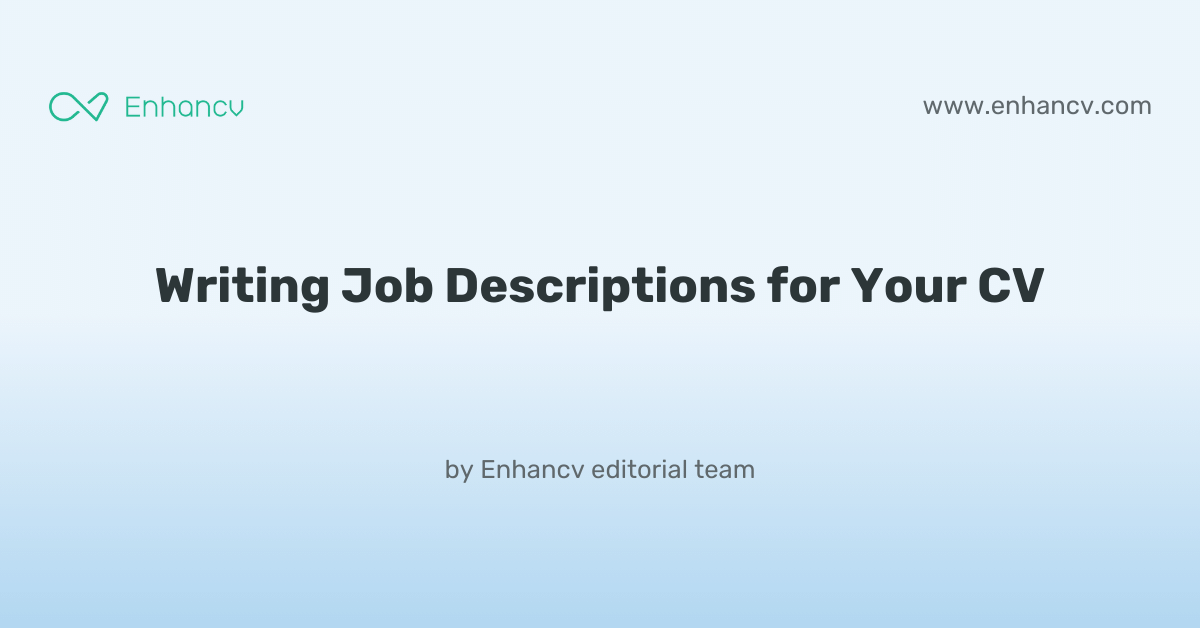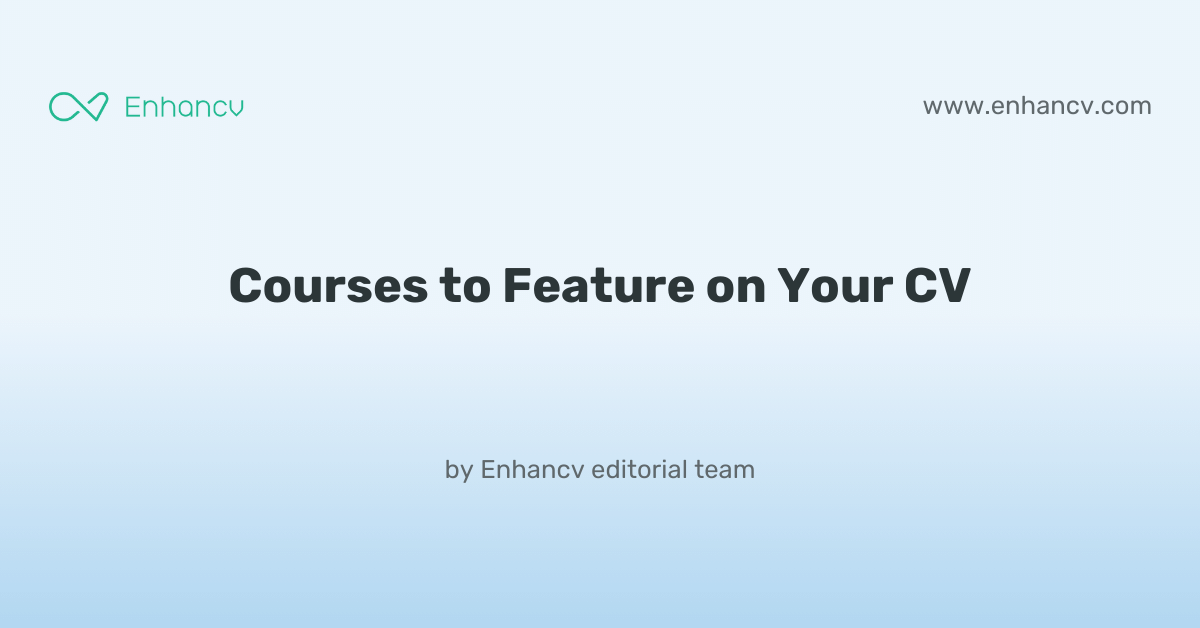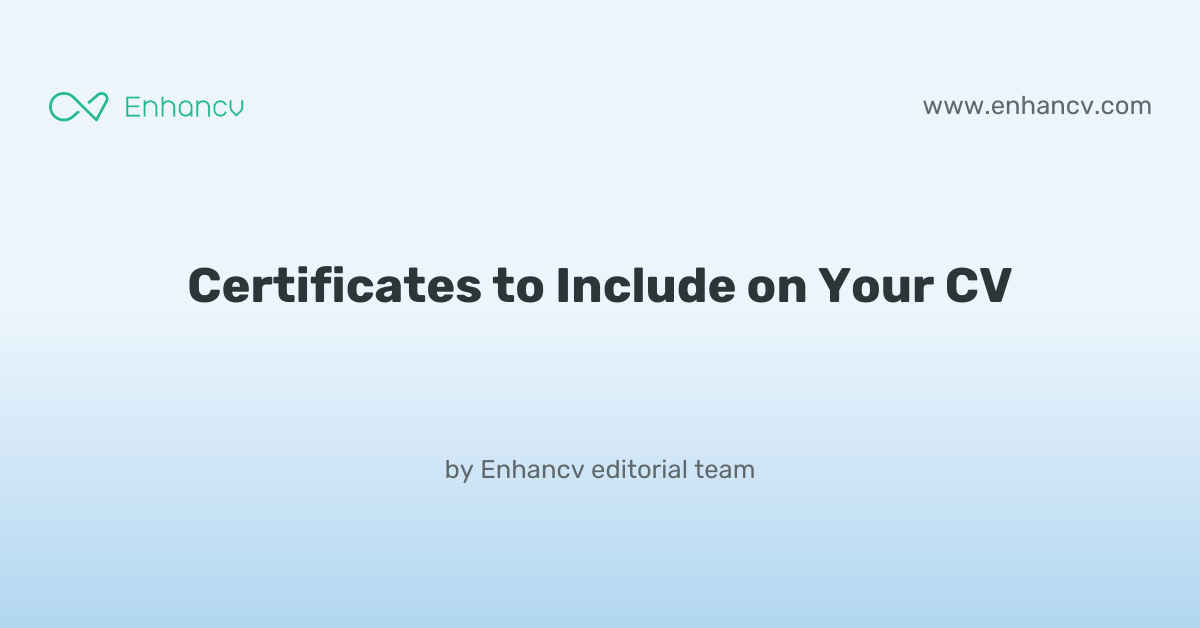Crafting a CV that accurately reflects your hands-on experience and compassionate care skills is a common challenge for a nursing assistant. Our comprehensive guide provides targeted advice and practical examples to help you articulate your qualifications and stand out to potential employers.
- Answer job requirements with your nursing assistant CV and experience;
- Curate your academic background and certificates, following industry-leading CV examples;
- Select from +10 niche skills to match the ideal candidate profile
- Write a more succinct experience section that consists of all the right details.
Do you need more specific insights into writing your nursing assistant CV? Our guides focus on unique insights for each individual role:
How complex should the format of your nursing assistant CV be?
Perhaps, you decided to use a fancy font and plenty of colours to ensure your nursing assistant CV stands out amongst the pile of other candidate profiles. Alas - this may confuse recruiters. By keeping your format simple and organising your information coherently, you'll ultimately make a better impression. What matters most is your experience, while your CV format should act as complementary thing by:- Presenting the information in a reverse chronological order with the most recent of your jobs first. This is done so that your career history stays organised and is aligned to the role;
- Making it easy for recruiters to get in touch with you by including your contact details in the CV header. Regarding the design of your CV header, include plenty of white space and icons to draw attention to your information. If you're applying for roles in the UK, don't include a photo, as this is considered a bad practice;
- Organising your most important CV sections with consistent colours, plenty of white space, and appropriate margins (2.54 cm). Remember that your CV design should always aim at legibility and to spotlight your key information;
- Writing no more than two pages of your relevant experience. For candidates who are just starting out in the field, we recommend to have an one-page CV.
One more thing about your CV format - you may be worried if your double column CV is Applicant Tracker System (ATS) complaint. In our recent study, we discovered that both single and double-column CVs are ATS-friendly . Most ATSes out there can also read all serif and sans serif fonts. We suggest you go with modern, yet simple, fonts (e.g. Rubik, Lato, Raleway) instead of the classic Times New Roman. You'll want your application to stand out, and many candidates still go for the classics. Finally, you'll have to export your CV. If you're wondering if you should select Doc or PDF, we always advise going with PDF. Your CV in PDF will stay intact and opens easily on every OS, including Mac OS.
PRO TIP
Use bold or italics sparingly to draw attention to key points, such as job titles, company names, or significant achievements. Overusing these formatting options can dilute their impact.
The top sections on a nursing assistant CV
- Professional Summary showcases your passion for patient care.
- Nursing Qualifications detail your relevant medical training.
- Work Experience lists your history in nursing and caregiving.
- Key Skills highlight your nursing and interpersonal abilities.
- Certifications and Memberships show ongoing professional development.
What recruiters value on your CV:
- Highlight your certifications and qualifications, such as a Certified Nursing Assistant (CNA) certificate or relevant diplomas, ensuring to detail any specialised training that pertains to patient care and support.
- Emphasise your hands-on experience with patient care, including tasks like bathing, dressing, and feeding patients, as well as proficiency in using medical equipment and performing basic medical procedures.
- Include any experience with Electronic Health Record (EHR) software and other technology used in patient management, as this skill is increasingly crucial for nursing assistants in modern healthcare settings.
- Focus on your soft skills, such as strong communication, empathy, and the ability to work under pressure, which are essential for providing compassionate care and interacting effectively with patients and healthcare teams.
- Detail any additional responsibilities you've managed, such as training new staff or overseeing a ward's inventory of supplies, to demonstrate leadership and organisational skills specific to nursing assistant duties.
Recommended reads:
How to present your contact details and job keywords in your nursing assistant CV header
Located at the top of your nursing assistant CV, the header presents recruiters with your key personal information, headline, and professional photo. When creating your CV header, include your:
- Contact details - avoid listing your work email or telephone number and, also, email addresses that sound unprofessional (e.g. koolKittyCat$3@gmail.com is definitely a big no);
- Headline - it should be relevant, concise, and specific to the role you're applying for, integrating keywords and action verbs;
- Photo - instead of including a photograph from your family reunion, select one that shows you in a more professional light. It's also good to note that in some countries (e.g. the UK and US), it's best to avoid photos on your CV as they may serve as bias.
What do other industry professionals include in their CV header? Make sure to check out the next bit of your guide to see real-life examples:
Examples of good CV headlines for nursing assistant:
- Certified Nursing Assistant | 5+ Years in Paediatric Care | BLS Certified
- Senior Healthcare Assistant | Expert in Geriatric Support | NVQ Level 3 in Health and Social Care
- Experienced Nursing Aide | Acute Care Expertise | Phlebotomy & ECG Proficient
- Compassionate Care Assistant | Mental Health First Aider | 3 Years in Palliative Care
- Professional Nursing Assistant | Infection Prevention Champion | NVQ Level 2 Qualified
- Lead Nursing Support Worker | ICU Experience | Advanced CPR & Manual Handling Certified
Catching recruiters' attention with your nursing assistant CV summary or objective
Located closer to the top of your CV, both the summary and objective are no more than five sentences long and serve as an introduction to your experience. What is more, you could use either to entice recruiters to read on. Select the:
- Summary, if you happen to have plenty of relevant experience. Feature your most impressive accomplishments and up to three skills that are relevant to the job you're applying for;
- Objective, if you're just starting your career off. Provide your career goals and answer how you see the role you are applying for will match your professional growth.
Judging which one you need to add to your nursing assistant CV may at times seem difficult. That’s why you need to check out how professionals, with similar to your experience, have written their summary or objective, in the examples below:
CV summaries for a nursing assistant job:
More detailed look into your work history: best advice on writing your nursing assistant CV experience section
The CV experience is a space not just to merely list your past roles and responsibilities. It is the CV real estate within which you could detail your greatest accomplishments and skills, while matching the job requirements. Here's what to have in your experience section:
- Prove you have what the job wants with your unique skill set and past successes;
- Start each bullet with a strong, action verb, and continue with the outcome of your responsibility;
- Use any awards, nominations, and recognitions you've received as solid proof of your skill set and expertise;
- align your experience with the role responsibilities and duties.
For more help on how to write your CV experience section, check out the next section of our guide:
Best practices for your CV's work experience section
- Provided high-quality patient care as a compassionate Nursing Assistant, assisting with daily living activities and personal care in accordance with individual care plans.
- Monitored vital signs such as blood pressure, pulse, and temperature, promptly reporting any significant changes to the registered nursing staff.
- Effectively communicated with patients of diverse backgrounds and ages, offering emotional support and reassurance in difficult and stressful times.
- Collaborated with interdisciplinary healthcare teams to create and implement care plans, ensuring seamless delivery of care and improving patient outcomes.
- Exercised infection control measures rigorously, maintaining a clean and sanitary environment to reduce the risk of infection spread amongst patients and staff.
- Administered and documented medication under the supervision of a licensed nurse, following strict protocols to ensure patient safety and compliance with regulations.
- Efficiently operated and maintained various medical equipment, including oxygen concentrators, Hoyer lifts, and electronic patient charts, to aid in patient care and documentation.
- Participated in continuing education and training to stay current with the latest practices in nursing care, demonstrating a commitment to professional development.
- Assisted in the coordination of patient discharge by preparing documents, educating patients and families on aftercare instructions, and arranging necessary follow-up appointments.
- Administered direct patient care for an average of 20 patients per shift, recording vital signs and assisting with daily living activities, enhancing patient comfort and support.
- Coordinated with a team of healthcare professionals to develop personalised care plans, contributing to a 15% decrease in patient recovery time.
- Implemented electronic health record system updates, ensuring accurate documentation and compliance with hospital protocols, which improved patient data retrieval efficiency by 25%.
- Provided exceptional patient care in a fast-paced trauma unit, supporting the wellbeing of over 50 patients weekly through skilled monitoring and compassionate interaction.
- Arranged and facilitated group therapy sessions for 2 hours weekly, resulting in improved patient mental health and community integration.
- Led a quality improvement project to enhance hygiene practices, which led to a 30% reduction in hospital-acquired infections.
- Assisted in surgical procedures by preparing operating rooms, sterilizing equipment, and ensuring adequate supply levels, helping maintain a 99% success rate for surgical operations.
- Delivered compassionate end-of-life care to terminal patients, working closely with hospice teams to provide comfort and emotional support.
- Trained 10 new nursing assistants, improving the quality and consistency of patient care services provided at the facility.
- Monitor patients with chronic conditions, employing advanced telemetry equipment to track health metrics, facilitating prompt response to medical emergencies.
- Coordinate discharge planning in collaboration with multidisciplinary teams, improving patient transition to home care by 20%.
- Pioneer a patient education initiative on managing diabetes, increasing adherence to treatment plans among the patient cohort by 35%.
- Supervised the children's ward, creating a nurturing environment for pediatric patients and achieving a patient satisfaction score of 95%.
- Collaborated on a research paper on pediatric pain management techniques, contributing to a groundbreaking protocol adopted across the network.
- Conducted regular training sessions on pediatric emergency care for nursing staff, enhancing the unit's response time to critical situations by 40%.
- Managed wound care for up to 25 patients daily, utilizing the latest dressings and healing techniques to accelerate the healing process.
- Facilitated the integration of a new digital medication management system, reducing medication errors by 50%.
- Engaged in continuous professional development, attending over 10 accredited courses on patient care and advanced nursing practices.
- Develop and implement care routines for elderly patients with dementia, enhancing the stability and predictability of their environment.
- Regularly assess patients' nutritional needs and collaborate with dieticians to tailor meals plans, increasing patient satisfaction with meal quality by 20%.
- Organize and supervise therapeutic recreational activities tailored to individual patient interests, boosting engagement and social interaction.
- Established protocols for managing infectious diseases in the intensive care unit, significantly lowering cross-contamination risks across the department.
- Acted as the lead health carer during night shifts, overseeing the critical care of 15 ICU patients and ensuring 24/7 care coverage.
- Streamlined patient admission and discharge procedures within the ICU, reducing administrative bottlenecks and increasing departmental efficiency by 30%.
Writing your CV without professional experience for your first job or when switching industries
There comes a day, when applying for a job, you happen to have no relevant experience, whatsoever. Yet, you're keen on putting your name in the hat. What should you do? Candidates who part-time experience , internships, and volunteer work.
Recommended reads:
PRO TIP
If you have experience in diverse fields, highlight how this has broadened your perspective and skill set, making you a more versatile candidate.
The CV skills' divide: between hard and soft skills
Of course, you may have read the job requirements plenty of times now, but it's key to note that there is a difference between technical and personal skills. Both are equally relevant to your job application. When writing about your skill set, ensure you've copy-pasted the precise skill from the job requirement. This would not only help you ensure you have the correct spelling, but also pass any Applicant Tracker System (ATS) assessments.
- Hard skills show your technological capabilities. Or whether you'll be a good technical fit to the organisation. Ensure you've spotlighted your hard skills in various sections of your CV (e.g. skills section, projects, experience) by including the technology and what you've attained;
- Soft skills pinpoint your personality and people or communication skills, hinting at if you'll easily accomodate into the team or organisation. Quantify your soft skills in your CV achievements, strengths, summary/objective, and experience sections. Always support your soft skills with how they've helped you grow as a professional.
Top skills for your nursing assistant CV:
Patient Care
Vital Signs Monitoring
CPR Certification
Infection Control
Medical Terminology
Basic Life Support (BLS)
Charting and Documentation
Patient Hygiene Assistance
Mobility Assistance
Wound Care
Empathy
Communication
Teamwork
Time Management
Stress Management
Adaptability
Attention to Detail
Interpersonal Skills
Problem-Solving
Cultural Competence
PRO TIP
If there's a noticeable gap in your skillset for the role you're applying for, mention any steps you're taking to acquire these skills, such as online courses or self-study.
Your university degree and certificates: an integral part of your nursing assistant CV
Let's take you back to your uni days and decide what information will be relevant for your nursing assistant CV. Once more, when discussing your higher education, select only information that is pertinent to the job (e.g. degrees and projects in the same industry, etc.). Ultimately, you should:
- List only your higher education degrees, alongside start and graduation dates, and the university name;
- Include that you obtained a first degree for diplomas that are relevant to the role, and you believe will impress recruiters;
- Showcase relevant coursework, projects, or publications, if you happen to have less experience or will need to fill in gaps in your professional history.
PRO TIP
If there's a noticeable gap in your skillset for the role you're applying for, mention any steps you're taking to acquire these skills, such as online courses or self-study.
Recommended reads:
Key takeaways
Impressing recruiters with your experience, skill set, and values starts with your professional nursing assistant CV. Write concisely and always aim to answer job requirements with what you've achieved; furthermore:
- Select a simple design that complements your experience and ensures your profile is presentable;
- Include an opening statement that either spotlights your key achievements (summary) or showcases your career ambitions (objective);
- Curate your experience bullets, so that each one commences with a strong, action verb and is followed up by your skill and accomplishment;
- List your hard and soft skills all across different sections of your CV to ensure your application meets the requirements;
- Dedicate space to your relevant higher education diplomas and your certificates to show recruiters you have the necessary industry background.
